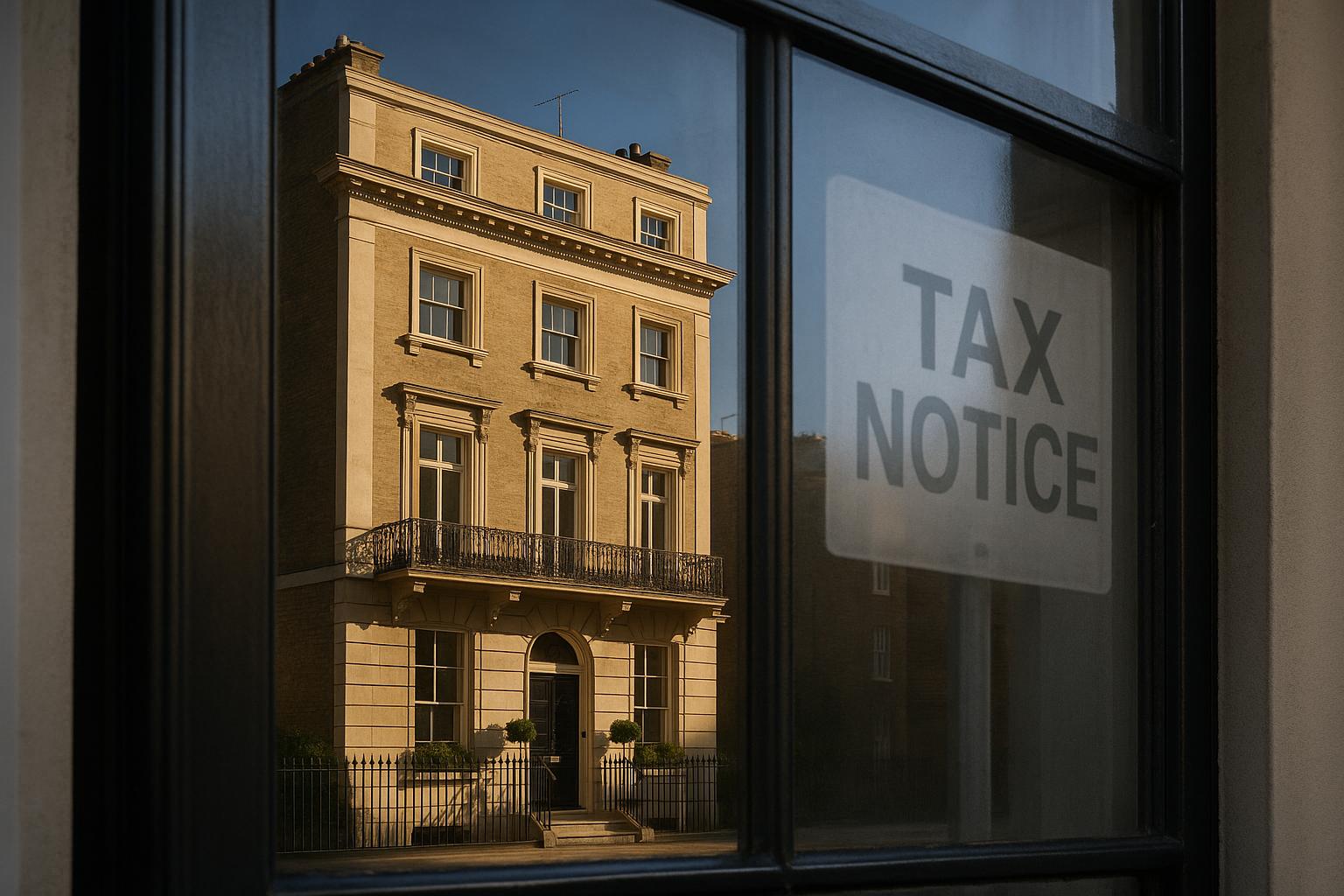Britain’s Chancellor Rachel Reeves is poised to introduce a significant new levy on high-value homes in the upcoming annual budget, scheduled for announcement on November 26. According to reports by The Telegraph and Reuters, the levy is expected to target hundreds of thousands of properties, primarily in London and the southeast of England, where property values are considerably higher than the national average. This initiative aims to raise tens of billions of pounds, helping the government meet its fiscal targets amid recent shifts in fiscal policy.
The proposal involves using the existing council tax framework to revalue around 2.4 million properties falling within council tax bands F, G, and H, which represent some of the most valuable homes. A new surcharge would then be applied to approximately 300,000 of these high-value properties, effectively creating a supplemental levy layered on top of current council tax bills. Government officials have remained tight-lipped on these developments, with the finance ministry refraining from commenting on fiscal changes prior to official announcements.
This policy marks a notable pivot for Chancellor Reeves, who has reportedly abandoned plans to raise income tax in light of more positive fiscal forecasts. Instead, the emphasis has shifted toward extracting revenue from the property market, with high-value property owners becoming a focal point. The move follows earlier considerations discussed during the summer, when Reeves was reported to be examining several property-related tax reforms to address ongoing fiscal challenges.
Among the options previously explored were the removal of the capital gains tax exemption on primary residences valued above £1.5 million, which could have subjected homeowners to capital gains tax rates of 18% or 24%, depending on their income bracket. This measure was projected to generate between £30 billion and £40 billion to stabilise public finances while honouring Reeves’ promise not to increase taxes on income and consumption.
Additionally, there was contemplation of a broader overhaul of the property tax system via the replacement of stamp duty with a national property tax. This proposed tax would apply to owner-occupiers selling homes valued over £500,000, with rates set by the government based on property values. This move aimed to simplify the property tax regime while raising additional revenue, particularly in the context of the sharp rise in property prices seen in recent years. Such proposals have attracted significant attention from property experts and market commentators who argued in favour of abolishing the so-called “sin tax” of stamp duty, advocating instead for an annual property tax model.
The new levy reflects ongoing governmental efforts to rebalance the tax system by shifting some fiscal responsibilities toward wealth concentrated in high-value property assets, especially in regions like London where the average property price far exceeds the national figure , estimated around £673,000 compared to the UK average of approximately £283,000. The policy could serve as a foundation for future reforms, including potential local levies to replace or supplement council tax.
While the specifics remain under wraps, reports indicate that any changes will form part of a comprehensive tax strategy unveiled either at the imminent budget or other key fiscal events. The government’s approach signifies a substantial recalibration of property taxation, moving away from traditional income tax hikes toward targeting wealth implicit in housing, illustrating the continuing pressure to manage the public finances amid evolving economic conditions.
📌 Reference Map:
- [1] (Cyprus Mail) - Paragraph 1, Paragraph 2, Paragraph 3
- [2] (Reuters) - Paragraph 1, Paragraph 2
- [3] (The Guardian) - Paragraph 4
- [4] (The Guardian) - Paragraph 5
- [5] (The Guardian) - Paragraph 5
- [6] (The National News) - Paragraph 6
- [7] (Shields Gazette) - Paragraph 5
Source: Noah Wire Services
